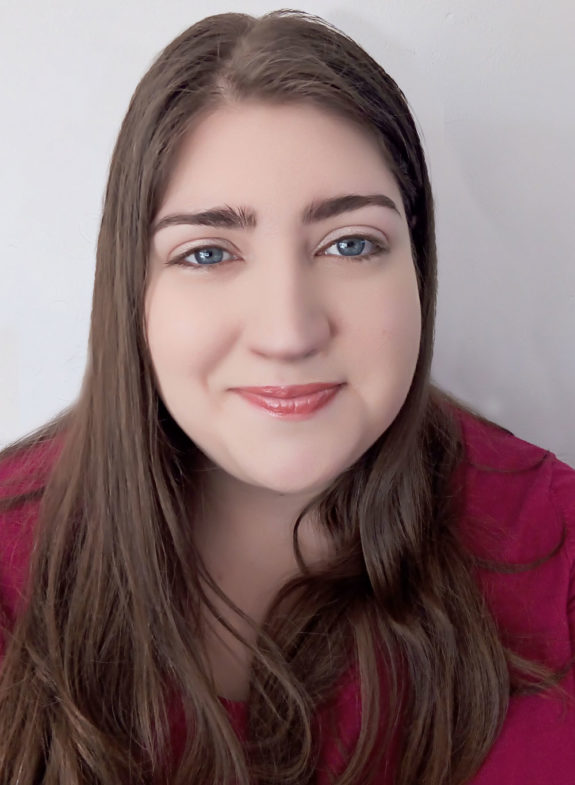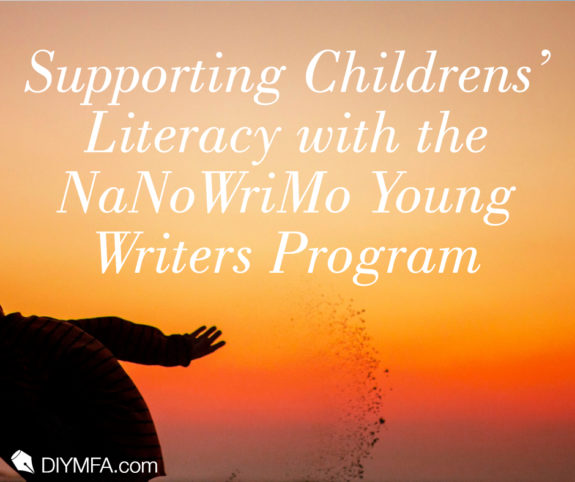Literacy, in its most basic definition, is the ability to read and write. It can also be defined as fluency with a subject like math, or competence with skills such as computer literacy.
Being able to read and write are skills many of us take for granted. We learn as kids and use them every day, throughout our day (especially online!). As writers we become immersed in what makes a great sentence–and may forget how difficult it was to sound out the phonetics in a picture book for the first time, or to clumsily shape our own names with a crayon.
Of course, plenty of adults have struggled since those early days with learning disabilities, vision impairment, and other difficulties that make it harder to read and/or write. And yet, many people who have struggled, and continue to struggle, keep reading and writing anyway. Why? Because they fell in love with sharing stories.
This love for stories often starts young. There are umpteen studies showing how vital it is to read to very small children, to keep reading to older kids. Being literate improves their outcomes in school and life. Literacy is required for a growing proportion of jobs.
Sometimes when people talk about literacy they emphasize the importance of reading and neglect how vital it is to also be able to write. Being able to communicate clearly, whether it’s a PhD dissertation or a memo about leftovers in the breakroom fridge, can make or break a person’s career or reputation. If they’re tasked with writing safety documentation, clear writing can literally save lives.
So how can we inspire kids to love not only reading but writing as well? How can we encourage them to speak, shout, declare their very own stories? The NaNoWriMo Young Writers Program is doing just that.
What is the NaNoWriMo Young Writers Program (YWP)?
YWP is an extension of National Novel Writing Month (NaNoWriMo), which is a challenge to all writers to get out a 50,000 word novel in 30 days. That’s a big goal for adults and an even bigger challenge for kids, but the challenge has a lot of benefits, so the team behind NaNoWriMo made a separate program focused on kids and students up to age 18. Kids who enroll in YWP can set their own word count goal for the 30 day challenge. A first grader’s goal might be 50 or 100 words.
Because literacy is such a vital skill it makes sense to incorporate the program into classrooms. In 2017 over 9,000 classrooms took part in the YWP, with over 100,000 students! Teachers can sign up to get a free classroom starter kit customized to their students’ grade level. Support materials include lesson plans, workbooks, a progress tracker poster, motivational pep talks, certificates and badges, and writing prompts.
The NaNoWriMo Young Writers Program website also makes it easy for teachers to keep up with their students’ progress. It’s important to note that the YWP exists on a separate site from the main NaNoWriMo.org with its public forums and user profiles, to protect kids from cyberbullies and malicious adults. YWP is a safe space for kids to interact, learn, and write.
Though most of the support is geared towards classrooms, families can join YWP too. All young writers are welcome!
Benefits of the NaNoWriMo Young Writers Program
Every person has a story to tell. The YWP encourages kids to tell their stories, empowering them to speak up and speak out.
YWP motivates kids to write! In the post-2017 event survey, 76% of participants said they were more enthusiastic about writing (more great feedback in this PDF). Just like with reading, kids won’t do a thing they don’t enjoy. The YWP makes writing fun for kids.
The goal of the program is to tell a story, not to write something technically perfect. Students aren’t graded on spelling or punctuation, but on tenacity and follow-through. This allows young writers to practice writing with abandon, instead of fixating on doing it “right.”
Setting and achieving goals proves to students that they can accomplish big things. In 2017 70% of participants “said they learned what they can accomplish when they’re determined.” Kids set their own goals and can adjust them as the month goes on, allowing them space to assess their own limitations and exceed their own expectations.
Nurturing the next generation of writers–and readers
Writers are readers! The best way to learn to write is to read, and kids who love writing are more likely to also be readers. As adult writers, we should celebrate literacy in kids because they will be our readers today and tomorrow. Someday we’ll be reading their amazing books!
As a local author you can inspire young writers! Reach out to your local schools and libraries to see if they’re participating, and offer to lead a lesson for students. As a writer you’ll be someone who’s done the big, scary thing before, someone who knows what they’re going through. If you’ve participated in NaNoWriMo (maybe even as a Young Writer yourself!) you can share your experiences with the challenge. Kidlit writers often visit schools and libraries to talk to kids about their own books, so why not ask about the books your listeners are writing?
In doing so, you’ll be modeling what a “real writer” looks like for them–and it’ll be someone local, someone they might see at the grocery store. This modeling is even more important for people from marginalized communities. If you are part of such a community, you’ll be showing kids that people like you really can be, and are, writers! If you can see it, you can do it!
Ways to support the NaNoWriMo Young Writers Program
- Reach out to local schools and libraries to see if they’re participating. Offer to write a pep talk or visit to talk about writing with kids.
- Spread the word to parents and kids you know. Learn about the program and answer questions for parents who are considering signing up.
- Donate to NaNoWriMo and the Young Writers Program. Donations fund the free classroom kits distributed to every participating teacher and keep the website functioning year-round.
- Be a positive force in the NaNoWriMo community. After age 13 young writers are legally allowed to join the public forums, and may choose to hang out there. Keep an eye out for them and help guide them away from trolls and toward their best writing selves.
As writers for kids it’s important that we consider the well-being of our readers and act on our principles: books are good for kids. Reading is good for kids. And writing is good for kids.
You can learn more about the YWP at ywp.nanowrimo.org and in this great overview PDF, donate at the official NaNoWriMo shop, or learn more about how the non-profit behind NaNoWriMo operates.

Bronwen Fleetwood writes fiction for young adults, and nonfiction for writers. Bronwen studied creative writing at Eugene Lang,The New School for Liberal Arts, has acted as leader of the Princeton Writing Group, and as a Municipal Liaison for National Novel Writing Month. Bronwen currently lives on the Whale Coast of South Africa, between the mountains, the sea, and a lake. You can connect with her at bronwenfleetwood.com.







